By the Numbers
180,327
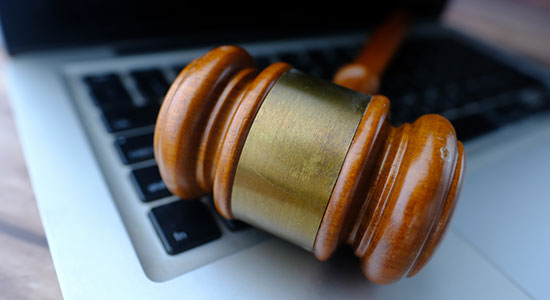
– The number of Zoom proceedings, including meetings and court hearings, held by the Wisconsin Court System between April 22, 2020, and April 22, 2021, due to COVID-19.
Wisconsin courts have hosted more than 2 million participants through more than 1.3 million hours of Zoom proceedings, according to Jean Bousquet, chief information officer for the court system’s Consolidated Court Automation Programs (CCAP).
Wisconsin circuit courts resolved 608,730 criminal and civil cases in 2020, more than 200,000 less than the average number of dispositions in the previous five years.
That’s not surprising in a pandemic year that led to court shutdowns and suspension of in-person hearings starting in March 2020.
But the state courts have kept backlogs at bay through Zoom hearings, a trend that may continue in Wisconsin and elsewhere.
In July 2020, the Conference of Chief Justices and the Conference of State Court Administrators endorsed “Guiding Principles for Post-pandemic Court Technology.”
“The COVID-19 pandemic is not the disruption courts wanted, but it is the disruption that courts needed: to re-imagine and embrace new ways of operating; and to transform courts into a more accessible, transparent, efficient, and user-friendly branch of government,” the guiding principles note.
The Wisconsin Supreme Court is considering a petition to clarify the continued use of videoconferencing in the circuit courts, even after COVID-19.
Sources: The Atlantic; Wicourts.gov; National Center for State Courts.
Got a Nugget to Share?
Send your ideas for interesting facts, trends, tips, or other bits and bytes to wislawmag@wisbar.org, or comment below.
Good Idea
Illinois Becomes First State to Eliminate Cash Bail System
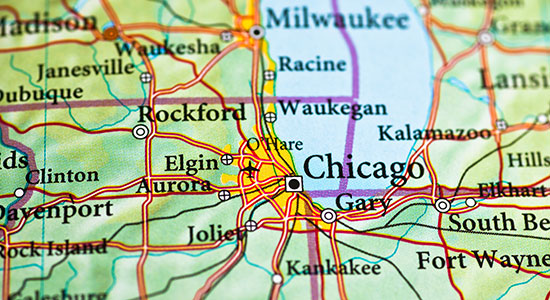
In February, Illinois become the first state in the country to abolish cash bail, called a “poor people’s tax” by criminal justice reform advocates.
Elimination of cash bail is part of the Illinois Pre-Trial Fairness Act, sponsored by a caucus of Black Illinois lawmakers, which includes several criminal justice reform measures.
“This legislation marks a substantial step toward dismantling the systemic racism that plagues our communities, our state and our nation, and brings us closer to true safety, true fairness and true justice,” said Illinois Gov. J.B. Pritzker.
The State Bar of Wisconsin has long supported efforts to reform the bail system by moving away from the use of cash bail, in favor of using a validated risk-assessment tool as the basis for pretrial detention decisions.
In April 2021, the State Bar’s Board of Governors adopted a policy position on law enforcement reform, supporting efforts “to address racial injustice and improve the justice system, including through policing reforms and citizen engagement with law enforcement.”
Read more at “Pretrial Services: A Way to Reduce Jail Populations” elsewhere in this issue. Learn about the State Bar’s efforts to reform the cash bail system at the State Bar’s Advocacy Network, at wisbar.org/GovRelations.
Source: NPR
Did You Know?
State Supreme Courts: More Room to Improve Racial Representation
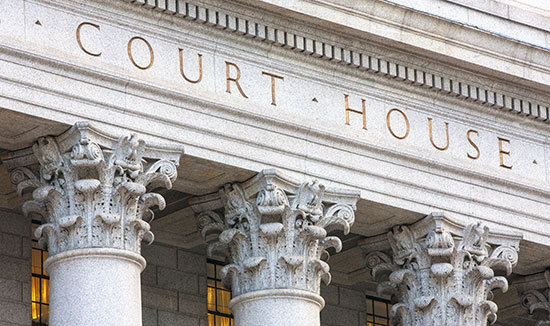
Seventeen percent of justices on state supreme courts in the United States are Black, Latino, Asian American, or Native American, according to a recent report by the Brennan Center for Justice at the New York University School of Law.
Louis Butler Jr. became the first African-American Wisconsin Supreme Court justice when appointed by then-Gov. Jim Doyle in 2004. Butler was defeated in an election in 2008.
People of color represent 40 percent of the U.S. population, but are far less represented in the legal profession.
A 2020 report from the American Bar Association, which covers lawyer demographics in the United States, noted that just 14 percent of all U.S. lawyers are men and women of color, including Hispanic, African-American, Asian, Native American, and mixed race.
On the Radar
A Cultural Shift and Focus on Lawyer Well-being
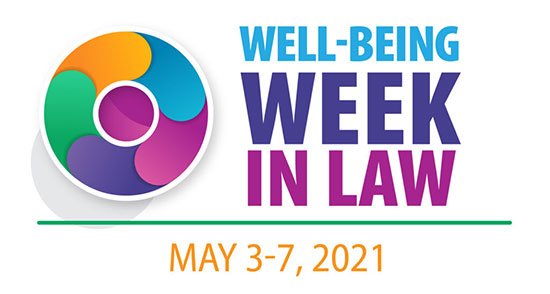
Well-Being Week in Law, organized by the Institute for Well-being in Law, was May 3 to May 7. Lawyers participated in activities that promote health and happiness across the legal profession.
If you missed well-being week, don’t worry. Lawyer well-being is something lawyers should address throughout the year.
“Well-being isn’t just for so-called ‘troubled lawyers,’” says Mary Spranger, manager of the State Bar of Wisconsin’s Wisconsin Lawyers Assistance Program, or WisLAP.
“It has relevance to all legal professionals. Being an advocate is hard work and can have detrimental effects on your mind, body, and spirit.”
Spranger, who is also a member of a Task Force on Wisconsin Lawyer Well-being – with a report expected this year – says lawyers can do as little or as much as they want to make a difference in their personal well-being.
“What matters is that you create that bit of space to take time for yourself,” she said.
“It’s the long-term, incremental changes that add up to enrich and balance your life.”
WisLAP 24-hour helpline: (800) 543-2625
Quotable
“No jury verdict can bring Mr. Floyd back. Nor does this verdict mean that we don’t need to reform our criminal justice system.”

– Wisconsin Attorney General Josh Kaul, after a jury convicted former Minneapolis police officer Derek Chauvin of second-degree unintentional murder, third-degree murder, and second-degree manslaughter in the death of George Floyd, a 46-year-old Black man.
On May 25, 2020, Chauvin used his knee to pin down George Floyd by his neck for 9 minutes and 29 seconds, causing his death.
The events were captured on video and sparked major nationwide protests against police brutality and racial injustice last summer. A Minnesota jury convicted Chauvin of the murder charges on April 20, 2021.
Tech Tip
Update Your Microsoft Exchange Server
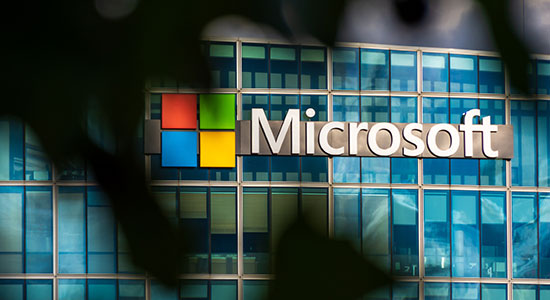
On March 2, 2021, Microsoft issued a series of patches for Microsoft Exchange Server versions 2010, 2013, 2016, and 2019 to address vulnerabilities actively being exploited by a state-sponsored threat actor.
Unpatched and affected servers provide hackers the opportunity to access the server through previously stolen credentials or the server’s vulnerabilities, create a web shell (enabling remote access), and steal data from the server.
In mid-April, several news outlets reported on the search warrant the Federal Bureau of Investigation obtained to copy and remove the web shells that hackers had installed, without first notifying owners of the affected computer systems.
After removing the web shells through a command code, the FBI began notifying owners of systems that were accessed for the purpose of removing the exploit.
Note that only the web shells were removed and patches were not installed on servers to address other vulnerabilities.
The Microsoft Security Response Center contains helpful resources regarding research and mitigation efforts to investigate your server for “exploitation, persistence, or evidence of lateral movement.”
The Department of Justice’s April 13 press release contains additional information regarding their “court-authorized effort to disrupt exploitation of Microsoft Exchange Server vulnerabilities.”
Talk with your information technology professionals to ensure your server has been updated and that none of your information has been accessed or stolen by hackers. And see “MS Exchange Security Flaws: 3 Takeaways” elsewhere in this issue.
Source: Christopher C. Shattuck, Practice Management Advisor (Practice 411™), State Bar of Wisconsin
